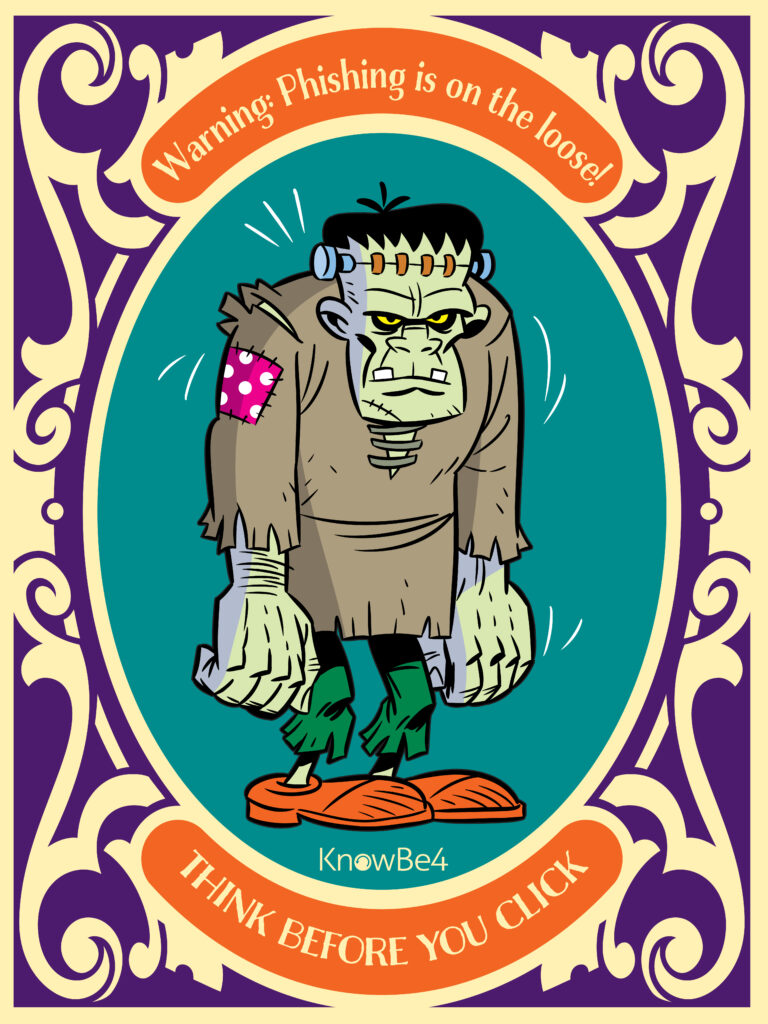

With blue skies, fall foliage, and haunted houses, October is one of the best times to live and learn in New England. It also happens to be cybersecurity awareness month, which makes it the perfect time to enjoy pumpkin spiced treats, plan your Halloween costume, and prepare yourself against the scariest monsters of them all: cybercriminals like Count Hackula and Frankenphisher.
What’s so scary about cybercriminals?
Most often, cybercriminals target personal identifying information (PII) such as your full legal name, birth date, or social security number. Once they have access to this information, they can use it to impersonate you, gain access to your accounts, and sell your data. For educational institutions such as Clark, hackers typically try to trick you into revealing your password so they can access the network, target others in the Clark community, and locate confidential data such as health or financial information of students and employees. As a reminder, ITS will never ask for the password to your Clark account, and this password should never be shared with anyone else, especially through an electronic means such as a text message or email.
Most cybersecurity violations (80% of security incidents and 90% of data breaches) stem from social engineering attempts, in which a cybercriminal or bot poses as a legitimate business, charity, or colleague. They often appear as emails, but cybercriminals may also send text messages or leave voicemails about an urgent or critical matter. For example, you may receive an email from a foundation asking for your personal information so you can receive a prize, or a text message reportedly from your bank regarding a compromised account. Learn more about different types of social engineering here.
Yikes! How can I protect myself?
- Watch this short video to review phishing warning signs
- Use the Phish Alert button in Outlook to report any suspicious messages (click here to view directions and more information). Please do not forward such emails to the Help Desk.
- Keep applications on all your devices, including your phone, up to date
- Consider using a password manager
- Review MFA options for your Clark account by navigating to myaccount.microsoft.com and selecting Security Info.
- Register as an individual Cybersecurity Awareness Month Champion for more free resources on cybersecurity
- Register your phone number(s) on the FTC’s National Do Not Call registry
If you have additional questions about cybersecurity at Clark University, please contact the Help Desk by emailing helpdesk@clarku.edu or by calling 508-793-7745.
